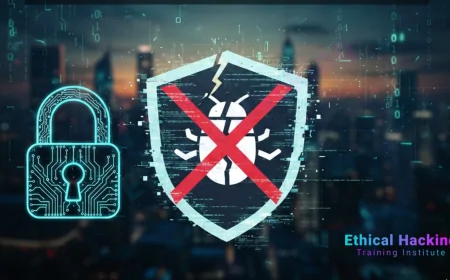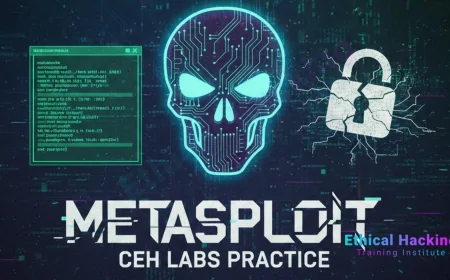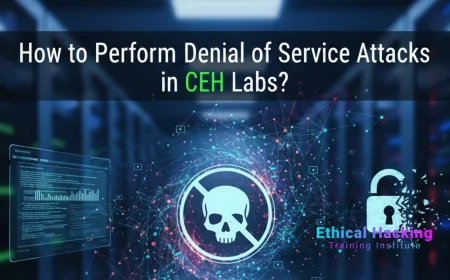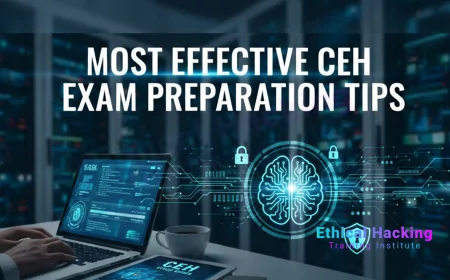Find CEH Certification Near You: Top Local Training Centers | Enroll in CEH Training Near You: Local Certification Made Easy
Discover top local CEH training centers near you. Learn how to choose the best Certified Ethical Hacker classes for hands-on skills and career growth.
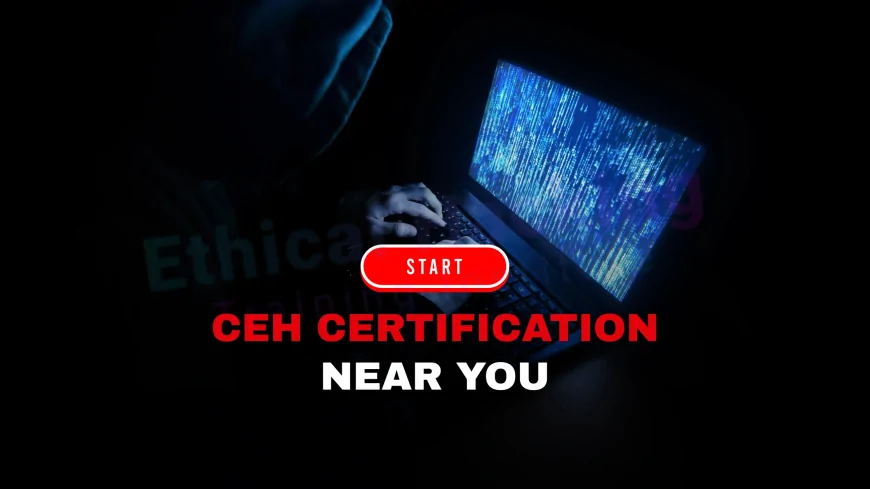
Table of Contents
- Introduction
- Why Choose Local CEH Training
- Types of Local Training Centers
- How to Find CEH Centers Near You
- What to Evaluate in a Training Center
- EC‑Council Accreditation & Lab Access
- Instructor Qualifications & Experience
- Curriculum & Practical Labs
- Delivery Formats: Classroom vs Hybrid vs Bootcamp
- Costs, Discounts & Scholarships
- Job Support & Alumni Outcomes
- Top Cities for CEH Training
- Tips for Success in Local Programs
- FAQs
- Conclusion
Introduction
Securing the Certified Ethical Hacker (CEH) credential is a major step toward a rewarding cybersecurity career. Local, in-person training centers offer structured learning, expert mentorship, and immersive lab experiences—making them a powerful option for hands-on learners. This comprehensive guide helps you discover, evaluate, and select top CEH training centers near you to accelerate your growth.
Why Choose Local CEH Training
- Live Interaction: Ask questions in real-time and receive instant feedback.
- Structured Environment: Defined schedules reduce distractions and procrastination.
- In-Person Labs: Access to physical or closely supervised virtual lab infrastructure.
- Peer Networking: Build connections with classmates who can support and collaborate.
- Mentorship & Guidance: Trainers often share real-world insights and career advice.
Types of Local Training Centers
- EC‑Council Authorized Training Centers (ATCs): Officially approved and audited.
- Private Cybersecurity Institutes: Often led by industry veterans.
- University Extension Programs: CEH offered within broader cybersecurity diplomas.
- Corporate Training Hubs: Sponsored by employers to upskill staff.
- Government Skill Centres: Public sector-run training bodies, often subsidized.
How to Find CEH Centers Near You
- Use the EC‑Council official locator tool by entering your city or postal code.
- Search Google Maps for terms like “CEH training near me” + your city.
- Review platforms like Justdial, Sulekha, or Yellow Pages for CEH institute listings.
- Ask peers or alumni in local tech or infosec meetups for recommendations.
- Engage with Reddit groups such as r/CEH or r/netsecstudents for insider insights.
What to Evaluate in a Training Center
- EC‑Council Accreditation: Ensure it's an official Authorized Training Center.
- Instructor Credentials: Look for EC‑Council Certified Trainers (C|CT) with pentest experience.
- Lab Facility Quality: In-person labs or virtual labs must be well-equipped and supervised.
- Curriculum Currency: Confirm coverage of CEH v13 topics, especially cloud, IoT, and CTF exercises.
- Class Size & Ratio: Smaller groups often yield better learning outcomes.
- Pass Rates & Testimonials: Review alumni placements, reviews, and pass success rates.
EC‑Council Accreditation & Lab Access
An official Authorized Training Center (ATC) is audited to ensure compliance with EC‑Council standards, including syllabi, labs, and trainer qualifications. For lab access, confirm the center provides official iLabs (cloud-based environments) or equivalent on-prem infrastructure. Ask how many hours of lab time are included and whether extra time can be booked.
Instructor Qualifications & Experience
Choose centers where trainers have real-world cybersecurity experience. Ideal qualifications include:
- EC‑Council Certified Trainer (C|CT)
- Advanced certifications like OSCP, GPEN, CISSP
- 5+ years in roles like penetration tester or security consultant
- Teaching experience and real-case studies
Your trainer’s insight into live incidents, red-team exercises, and industry best practices can significantly boost learning outcomes.
Curriculum & Practical Labs
Ensure the course includes:
- 20 modules of CEH v13: Reconnaissance, Scanning, Web Hacking, Malware, Wireless, IoT, Cloud, Cryptography
- Hands-on labs that replicate real attack scenarios
- CTF challenges to test speed, creativity, and methodology
- Report-writing exercises to build documentation skills
- Exam preparation: practice questions, mock tests, and review sessions
Delivery Formats: Classroom vs Hybrid vs Bootcamp
| Format | Pros | Cons |
|---|---|---|
| Full Classroom | Interactive, dedicated space, peer learning | Schedule restrictions, travel time |
| Hybrid | Flexibility & live labs | Potential tech issues, less physical presence |
| Bootcamp | Fast-track learning, intense focus | High energy investment, burnout risk |
Costs, Discounts & Scholarships
- Typical Classroom Fee: ₹60,000–₹90,000 (metro India); $1,000–$1,500 USD internationally
- Promos: Weekends only, early-bird, group discounts
- Scholarships: EC‑Council Hero discounts, veterans, student rates
- Employer Support: Many companies partially/full sponsor training
Always confirm if the exam voucher is included in the fee and whether post-training lab access is provided for practice and exam prep.
Job Support & Alumni Outcomes
The best training centers offer:
- Resume reviews & interview prep
- Placement connections with employers and partners
- Internship facilitation with cybersecurity firms
- Strong alumni network for mentoring and referrals
Ask centers to share placement statistics or anonymized success stories to understand real-world outcomes.
Top Cities for CEH Training
While training is available in most major cities, notable hubs include:
- India: Delhi NCR, Mumbai, Bengaluru, Hyderabad, Chennai, Pune
- USA: New York, Atlanta, Seattle, Dallas, San Francisco
- UK: London, Manchester, Edinburgh
- Canada & Australia: Toronto, Vancouver, Sydney, Melbourne
Tip: Smaller cities may have hybrid or online-only options but still offer strong quality training.
Tips for Success in Local Programs
- Arrive early and engage with peers
- Complete all pre-course labs or reading
- Ask for additional lab time if needed
- Prepare mocks early—don’t wait until the end
- Join study groups, online forums, and follow-up sessions
FAQs -
1. What makes a training center an EC‑Council ATC?
An ATC is formally authorized by EC‑Council, meets syllabus standards, and is audited for compliance.
2. Do I need to attend in person to pass CEH?
No—but attending a quality in-person or hybrid class enhances hands-on learning and mentorship.
3. How long does local CEH training last?
Most are 5 days (40 hours); bootcamps may condense to 2‑3 weekends.
4. Will the center provide the CEH exam voucher?
Often yes, but you must confirm—exam vouchers may be included or optional.
5. Can working professionals attend?
Yes—many providers offer weekend or evening batches designed for full-time working adults.
6. What equipment is needed onsite?
Usually your laptop with Kali Linux, VPN access, and lab software access—confirm with your center.
7. Will they offer career placement?
Top centers include interview prep and resume workshops; delivery may vary by provider.
8. Are scholarships available?
Yes—ask about EC‑Council Hero, student or corporate sponsorship options.
9. How big are classrooms?
Smaller groups (8–15 students) usually receive better attention and outcomes.
10. Do local centers teach CEH Practical?
Yes—many include training for the CEH Practical exam and simulated CTF labs.
11. Can I convert from classroom to online mid-course?
Depends on policy—many centers allow hybrid flexibility with advance notice.
12. What is iLabs?
iLabs is the EC‑Council’s cloud-based lab platform included with certified training.
13. What if there's no center in my city?
Consider enrolling in hybrid or live-online programs that offer virtual lab support.
14. How do I evaluate instructor quality?
Check trainer’s credentials, experience, and ask for demo classes or sample lectures.
15. Is post-training lab access provided?
Top centers include 30–60 days of post-course lab access for additional practice.
16. What types of labs are included?
Labs cover live hacking, web apps, Wi-Fi, malware, cloud, IoT, captured in real-world scenarios.
17. How do I prepare before joining?
Install Kali, refresh networking basics, review module outline, and do preliminary reading.
18. Can I retake classes if needed?
Policies vary—some centers offer free or discounted retakes within a set period.
19. How important is peer networking?
Very—it allows skill-sharing, study support, and future collaboration opportunities.
20. How do I book a demo session?
Contact the center, request a demo or shadow session, and attend to assess teaching style.
Conclusion
Finding the right local CEH training center involves evaluating accreditation, instructor quality, lab infrastructure, teaching format, and post-training support. Whether you're in India, the USA, UK, or elsewhere, aim for centers that deliver hands-on practice, mentorship, and job support along with exam prep. With the proper environment and commitment, an in-person CEH program can greatly accelerate your path to becoming a skilled ethical hacker.
What's Your Reaction?
 Like
0
Like
0
 Dislike
0
Dislike
0
 Love
0
Love
0
 Funny
0
Funny
0
 Angry
0
Angry
0
 Sad
0
Sad
0
 Wow
0
Wow
0
